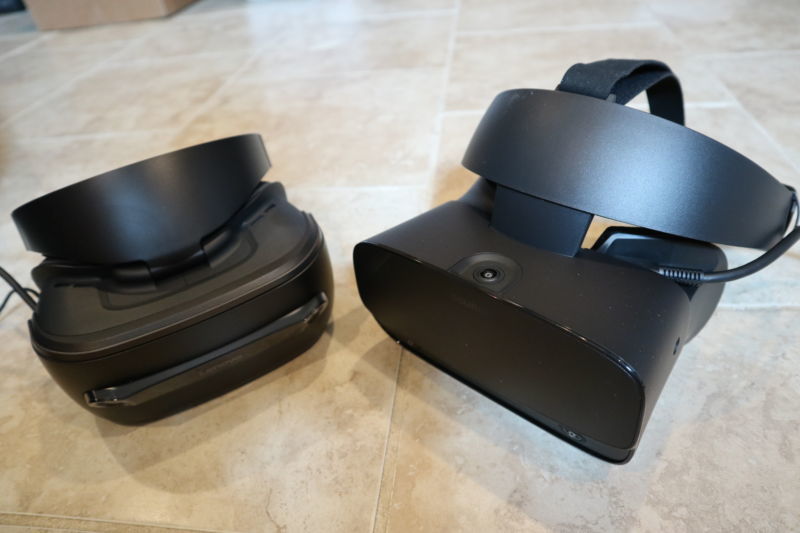no vr 4u –
Spencer: VR is “isolating,” but games are “a communal, kind of together experience.”

Enlarge/Microsoft’s own Windows Mixed Reality VR headsets aren ‘t set for support on the Xbox side, according to Spencer.
Microsoft Head of Xbox Phil Spencertold Australian gaming site Stevivorthat virtual reality support is “not where our focus is” for next year planned release ofan Xbox One successor known as Project Scarlett.
“I have some issues with VR,” Spencer told the site. “It’s isolating and I think of games as a communal, kind of together experience. We’re responding to what our customers are asking for and … nobody’s asking for VR.”
That closely mirrors comments Spencermade to Ars Technica in 2017, when he said, “We haven’t had people climbing over us saying, ‘Hey, when can you deliver a family room VR experience.’ I think a little of the setup with TV and dragging cables across the room is a little difficult. ” Apparently Microsoft’s view of its customers’ VR demand hasn’t changed much in the intervening years.
Players who really want virtual reality, Spencer suggested to Stevivor, are well served by the PC market and “other places,” presumably including PlayStation VR. But Spencer added that Microsoft “see [s] the [sales] volumes of those on PC and other places … [and] nobody’s selling millions and millions [of VR headsets].”
Is anybody asking for VR?
Spencer’s numbers aren’t totally accurate there. Sony announced back in March thatPlayStation VR has sold 4.2 million unitssinceits 2016 launch. And analysis firm Superdataestimated an install base of 14 million VR usersin 2018 across all platforms, a number it projects will grow to 51 million by 2022.
But Spencer’s implied point about VR’s underwhelming market impact so far does have some merit. In September, for instance, Oculus announcedcumulative sales of $ 100 million in VR softwarethrough the Oculus Store. That means total platform sales across more than three years and multiple Oculus VR headsets can’t even matchthe launch window revenue for a single console blockbuster like (Red Dead Redemption 2).
Some back-of-the-envelope math suggests this year standalone Oculus Questonly sold about 100, 00 0 units in its first two weeksas well. Compare that tothe million Xbox One units Microsoft managed to sell in the console’s first day of availabilityyears ago, and you can see why Spencer might consider VR a relative market niche.
Microsoft previously mentioned VR support inthe 2016 announcement of Project Scorpio, and at least one developersaid at the timeit was working on an Xbox One game with VR support. But when that hardware launched as the Xbox One X in 2017, virtual reality compatibility was nowhere to be found, even withMicrosoft’s own PC-based Windows Mixed Reality hardware.
While Spencer allowed to Stevivor that “I think we might get there [eventually] “when it comes to virtual reality on an Xbox console, it seems that thus far his opinion of the technology hasn’t changed much since (a) **************************************************************** (Stevivor interview) . “I don’t think the creators in the [VR] game space have yet found — well, they haven’t obviously perfected the craft of building VR games,” he said. “It’s so early, I think we’re a couple of years before we’ll really see that hit mainstream. “
Three years later, and that mainstream acceptance point for VR still hasn’t come.







GIPHY App Key not set. Please check settings